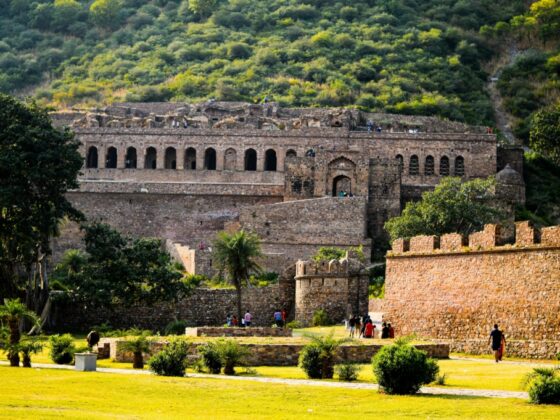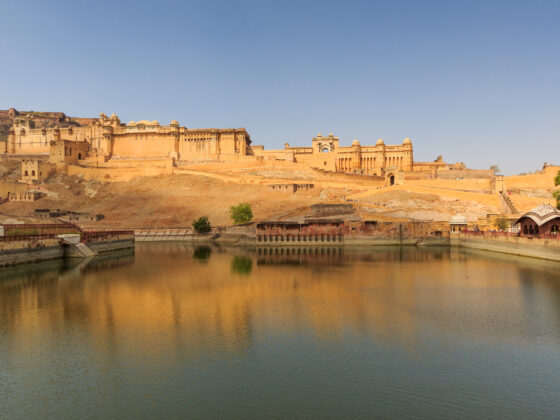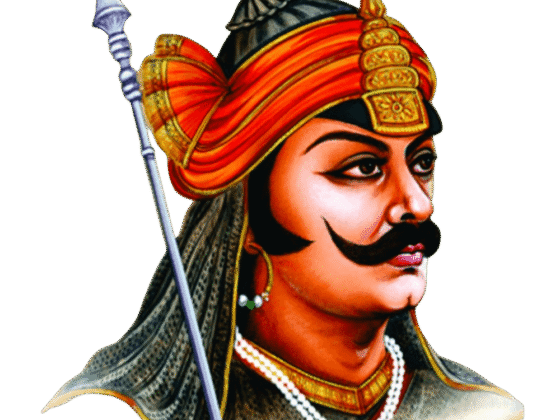Sawai Raja Suraj (Soor) Singh of Jodhpur: Fearless Rajput Warrior

Introduction
Sawai Raja Suraj Singh, also known as Soor Singh of Jodhpur, was one of the most influential Rajput rulers of Marwar during the late 16th and early 17th centuries. His reign marked a significant period in Jodhpur’s history as he played a key role in strengthening the kingdom politically and militarily while maintaining a complex yet strategic relationship with the Mughal Empire. His legacy continues to inspire Rajput history enthusiasts and scholars alike.
Early Life and Ascension to the Throne
Born in the late 16th century into the Rathore dynasty, Suraj Singh was the son of Raja Udai Singh of Jodhpur. His early life was shaped by rigorous martial training, strategic education, and exposure to the intricate political dynamics of Rajasthan. Upon the death of his father in 1595, Suraj Singh ascended the throne of Marwar, inheriting a kingdom that required both military strength and diplomatic acumen to sustain its sovereignty.
Relationship with the Mughal Empire
Suraj Singh’s reign coincided with the Mughal Emperor Akbar’s expansionist policies. Unlike many Rajput rulers who resisted the Mughal authority, Suraj Singh adopted a pragmatic approach. He aligned with Akbar and later with Emperor Jahangir, recognizing the advantages of a strong Rajput-Mughal alliance.
His loyalty to the Mughal Empire earned him the title of “Sawai”, a term signifying exceptional bravery and intelligence. This alliance allowed Jodhpur to gain economic prosperity, political stability, and military support while retaining significant autonomy in internal governance.
Military Achievements and Conquests
One of Suraj Singh’s most remarkable contributions was his military prowess. As a trusted Mughal ally, he led several successful campaigns on behalf of the empire. Some of his notable military achievements include:
- Conquest of Gujarat: Suraj Singh played a vital role in subduing the rebellions in Gujarat, demonstrating his tactical brilliance and earning high regard in the Mughal court.
- Expeditions in the Deccan: Under Emperor Jahangir’s command, he led military campaigns in the Deccan region, expanding Mughal influence and securing Marwar’s strategic interests.
- Battles in Mewar: Suraj Singh was instrumental in several military campaigns against Maharana Amar Singh of Mewar, further consolidating Mughal control in Rajasthan.
His battlefield expertise, combined with his ability to manage Marwar’s internal affairs efficiently, reinforced his reputation as a formidable Rajput warrior.
Administrative Reforms and Governance
Beyond his military achievements, Sawai Raja Suraj Singh focused on strengthening the internal administration of Jodhpur. His governance was marked by:
- Infrastructure Development: He initiated the construction of forts, temples, and reservoirs, contributing to the economic and social growth of Marwar.
- Trade and Commerce: By fostering trade relations with neighboring regions and promoting artisan industries, he ensured economic prosperity for his people.
- Justice and Law: His rule was characterized by a strong emphasis on justice, upholding Rajput traditions while integrating efficient governance models from the Mughals.
Patronage of Art, Culture, and Religion
Suraj Singh was a patron of Rajput culture, architecture, and religious institutions. He supported Hindu temples and Rajput cultural traditions, ensuring that Jodhpur remained a thriving center of art and learning. His contributions to temple architecture and Rajput folklore remain significant in Rajasthan’s cultural history.
Legacy and Impact
Sawai Raja Suraj Singh’s reign left a lasting impact on Jodhpur and Rajasthan. His ability to balance military might with diplomatic wisdom allowed Marwar to thrive during a politically volatile era. His descendants continued to build on his legacy, further strengthening Jodhpur’s position in Indian history.
Even today, his leadership serves as a model of courage, strategy, and statesmanship. His forts, temples, and stories of valor continue to inspire generations.
Conclusion
Sawai Raja Suraj Singh of Jodhpur was not just a warrior but a visionary ruler who navigated the complexities of Rajput and Mughal politics with remarkable skill. His military conquests, administrative reforms, and cultural patronage played a crucial role in shaping the history of Marwar. His legacy endures in the annals of Rajasthan’s rich history, reminding us of the valor and wisdom that defined the Rajput era.










